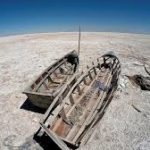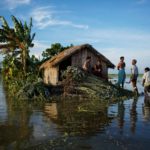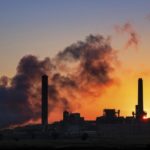Climate Change (or global warming) is the increase of the Earth’s global temperature. In the last century, it has been noted that the Earth temperature has increased by 1 degree Celsius. This number may not be very large; however, it has huge impacts on the wildlife and humans all around the world.
 What is causing the increases in temperature?
What is causing the increases in temperature?
Over the past century, more and more countries around the world have been more dependent on fossil fuels as their main source of energy. Fossils fuels are a reliable, inexpensive and nonrenewable energy source that powers our homes and cars. However, burning fossil fuels releases a large of amount of greenhouse gases (such as methane and carbon dioxide) which acts as a blanket shrouding over the Earth. As a result heat that is reflected off of the Earth cannot leave the atmosphere, thus causing the the global temperature to increase. In addition to this, us as humans, have been cutting down large areas of rainforests and jungle which also contributes to the Earth’s rising temperatures. Forests absorbs and fixes large amounts of carbon dioxide from air and converts it into oxygen. Not only does deforestation harm the existing wildlife, it also contributes to global warming.
 How does climate change affect us?
How does climate change affect us?
As the global temperatures continue to increase, it will cause more extreme weather patterns. Some examples of these would include, more rainfall, rising ocean levels and irrational change of seasons. As global temperatures continue to rise, glaciers in the polar regions of the Earth are starting to melt as a result causing sea levels to rise. It results in the lost of habitat of animals that thrive in the colder temperatures such as polar bears and seals. Not only does the increased temperatures affect the wildlife, it also affect us as humans. Rising temperatures cause more cases of drought, floods and increased rainfall thus drastically affecting the agriculture industry.
 What can we do to help?
What can we do to help?
We can call do our small part to help reduce the amount of greenhouse gases emissions that are released. Some of these things include switching to energy-saving light bulbs, walking/biking instead of driving, recycling food waste, and turning off electrical appliances when we are not using them. Other things you can do is make sure that your peers are aware of this problem, many people know and understand that this is occurring but because the changes are slow and not drastic it often slips out of their mind. By letting and reminding others about this problem, we can work together as a civilization to combat this growing problem.
Interested in science tutoring services? Learn more about how we are assisting thousands of students each academic year.
SchoolTutoring Academy is the premier educational services company for K-12 and college students. We offer tutoring programs for students in K-12, AP classes, and college. To learn more about how we help parents and students in Cape May, New Jersey: visit: Tutoring in Cape May, New Jersey.




